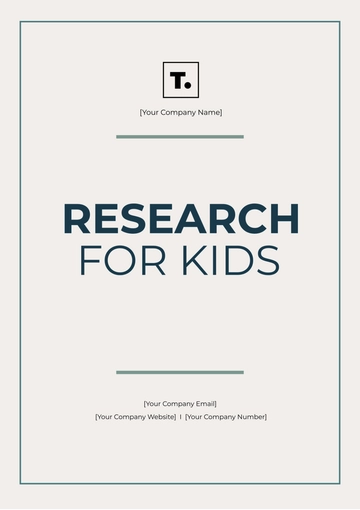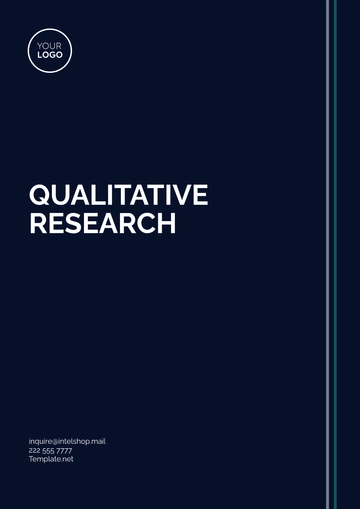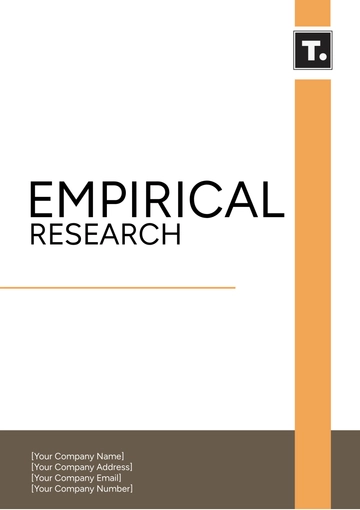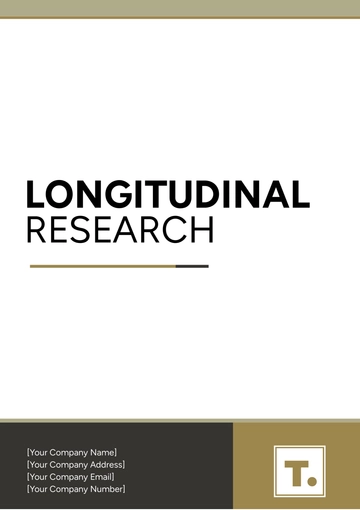Free Agriculture Sustainability Research
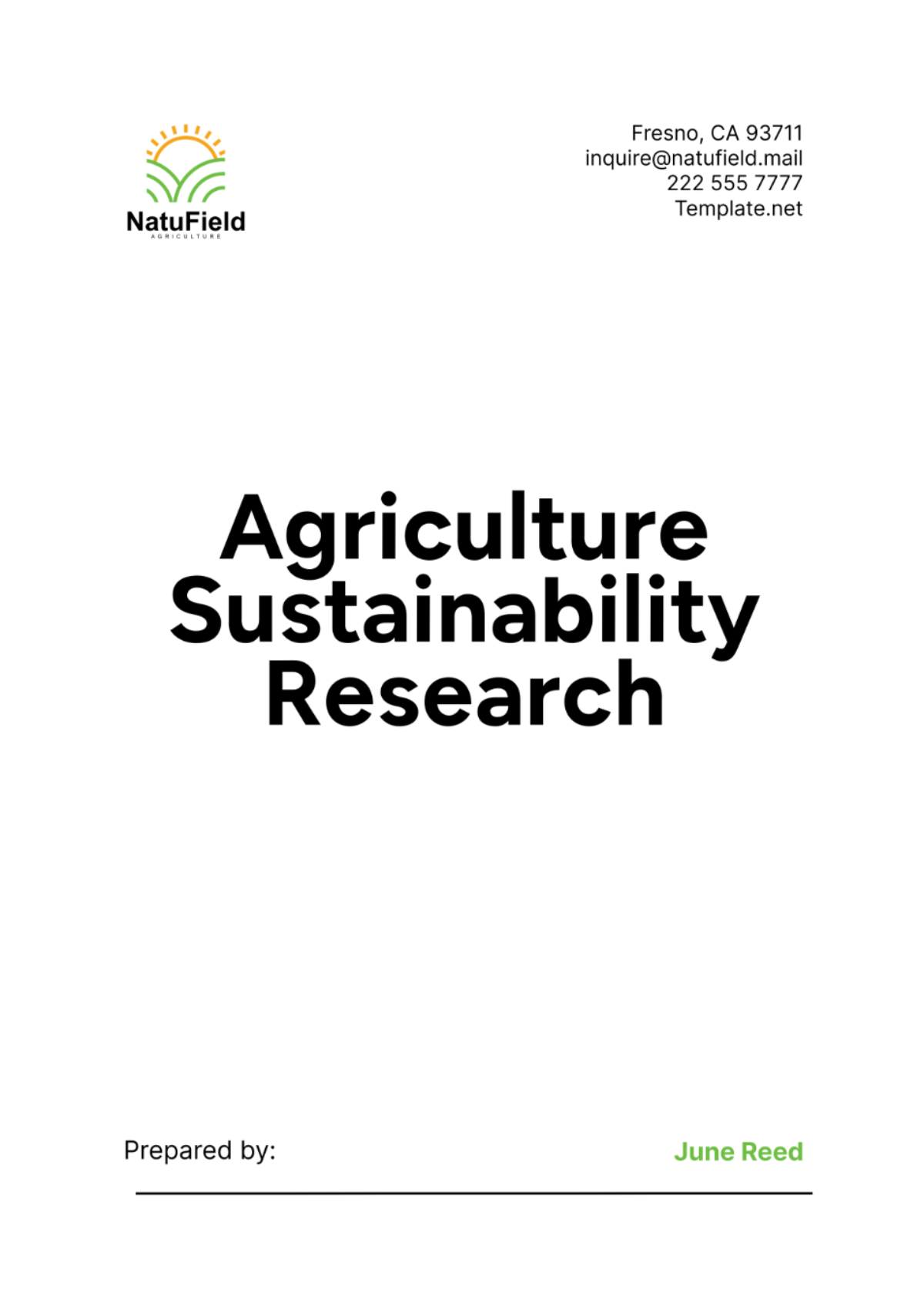
I. Introduction
A. Background and Context
Agriculture has undergone significant transformations over centuries, evolving from subsistence farming to industrialized practices that have strained ecosystems and natural resources. The emergence of sustainable agriculture represents a crucial shift towards practices that minimize environmental impact while ensuring long-term food security and rural livelihoods.
Around the world, there has been a significant increase in the adoption of sustainable agricultural practices. This growing trend is fueled by the recognition among various stakeholders of the pressing necessity to tackle several critical issues: the impacts of climate change, the erosion of biodiversity, and the resilience of food systems. These interconnected challenges have underscored the importance of implementing more sustainable methods in agriculture to ensure a healthier and more stable environment for future generations.
B. Importance of Sustainable Agriculture
Sustainable agriculture integrates ecological stewardship, economic viability, and social responsibility. It promotes methods that conserve soil fertility, reduce water usage, and preserve biodiversity, thus safeguarding natural resources for future generations. Beyond environmental benefits, sustainable agriculture enhances food quality, supports rural economies through diversified income opportunities, and fosters community resilience against climate variability and market fluctuations.
II. Literature Review
A. Historical Perspectives on Agriculture and Sustainability
Historical accounts trace the origins of sustainable agricultural practices to ancient civilizations that practiced crop rotation, soil conservation, and water management techniques. These practices aimed to sustain agricultural productivity while maintaining ecological balance, laying the groundwork for modern sustainability principles. Over time, industrialization led to intensified agricultural practices, prompting concerns about soil degradation, water scarcity, and chemical pollution, which spurred renewed interest in sustainable farming methods.
B. Current Trends and Challenges in Sustainable Agriculture
Contemporary agriculture faces unprecedented challenges, including population growth, climate change impacts, and declining natural resources. Sustainable agriculture trends emphasize agroecology, organic farming, and integrated pest management to mitigate these challenges while enhancing soil health and biodiversity. However, barriers to widespread adoption include high initial costs, limited access to technical support, and market dynamics that often undervalue environmental stewardship.
C. Review of Previous Research and Findings
Previous studies have documented the benefits of sustainable agriculture across diverse ecosystems and farming systems. Findings indicate that sustainable practices improve soil structure, increase carbon sequestration, and reduce greenhouse gas emissions compared to conventional methods. Moreover, research underscores the social benefits of sustainable agriculture, including enhanced food sovereignty, reduced health risks from chemical exposure, and improved resilience to climate-related disasters among farming communities.
III. Methodology
A. Research Design
Quantitative Methods
This study utilizes a comprehensive suite of quantitative methodologies, including field experiments and a variety of statistical analyses, to thoroughly evaluate the environmental and economic effects associated with sustainable agricultural practices. The process of data collection is extensive and involves meticulous measurements of several critical indicators of soil quality. The study also investigates water use efficiency to evaluate the effective utilization of water resources in sustainable farming, while examining crop yields to elucidate productivity improvements; collectively, these metrics aim to quantify the wide-ranging benefits of sustainable agricultural practices.
Qualitative Methods
Qualitative research methods play an integral role in understanding the multifaceted nature of sustainable agriculture by delving deeply into the perspectives and experiences of individuals closely tied to this field. This methodology entails performing detailed interviews with key participants, including farmers engaged in land cultivation, community stakeholders invested in local environmental progress, and agricultural experts knowledgeable in sustainable practices and innovations. These interviews allow researchers to delve deep into the perspectives regarding sustainable agriculture, uncover challenges, and highlight improvement opportunities within the sector.
Additionally, case studies offer contextual analyses of specific sustainable agricultural practices, revealing qualitative insights from real-life experiences. Complementary to this, focus group discussions explore the socio-cultural factors affecting the adoption of sustainable methods, uncovering collective attitudes, beliefs, and behaviors within the community. By integrating these qualitative research techniques, a comprehensive and nuanced comprehension of the factors influencing sustainable agriculture's successful implementation is attained.
B. Data Collection
Primary Data Sources
Primary data sources include a variety of methods and activities which involve the direct collection of information from experiences and observations within local farming communities. These primary data sources encompass field surveys, where data is gathered through systematic sampling and interviews directly from the farms and farmers. In addition, on-farm trials are conducted, which involve experimental planting or agricultural practices implemented directly on farms to observe and gather data on their effectiveness and outcomes.
Participatory workshops, where local farmers and stakeholders collaborate, are key for gathering firsthand, primary information through discussions and knowledge sharing. Combined with field surveys and on-farm trials, these methods provide detailed insights into farm management, resource efficiency, and the socio-economic impacts of sustainable agriculture, offering a valuable resource for promoting sustainable practices.
Secondary Data Sources
Secondary sources, which include peer-reviewed literature, government reports, and institutional databases, offer extensive contextual information relevant to various aspects of sustainable agriculture. These aspects encompass policy frameworks, market trends, and technological innovations. Peer-reviewed literature is particularly valuable because it has been rigorously evaluated by experts in the field, ensuring the reliability and validity of the information it contains. Government reports provide authoritative and comprehensive data and analyses generated by official bodies, reflecting current and past regulatory and policy environments. Institutional databases are repositories of organized information that can support in-depth research by providing access to a wealth of historical and contemporary data.
Literature reviews are crucial in this research, synthesizing existing knowledge from diverse scholarly sources to form and refine the theoretical framework, thereby guiding and supporting further investigation.
IV. Environmental Sustainability in Agriculture
A. Soil Health and Conservation Practices
Sustainable soil management practices focus on enhancing soil organic matter, improving nutrient cycling, and minimizing erosion through cover cropping and conservation tillage methods. These practices not only maintain soil fertility and structure but also enhance water infiltration rates and reduce nutrient leaching, contributing to improved agricultural productivity and resilience to climate variability.
B. Water Management and Efficiency
Efficient water management strategies in sustainable agriculture include rainwater harvesting, drip irrigation systems, and soil moisture monitoring technologies. These practices optimize water use efficiency, mitigate drought risks, and reduce agricultural runoff, thereby conserving freshwater resources and maintaining ecosystem health in water-stressed regions.
C. Biodiversity Conservation
Biodiversity conservation in agricultural landscapes involves integrating diverse crop rotations, agroforestry systems, and habitat restoration initiatives. These practices promote natural pest control, enhance pollination services, and preserve genetic diversity essential for resilient crop varieties. Moreover, biodiversity-friendly farming supports ecosystem services such as soil fertility maintenance and climate regulation, contributing to sustainable food production systems.
V. Economic Viability of Sustainable Practices
A. Cost-Benefit Analysis of Sustainable Techniques
Cost-benefit analyses assess the financial implications of adopting sustainable agricultural practices, considering initial investments, operational costs, and long-term economic benefits. Studies indicate that while initial adoption costs may be higher, returns on investment often accrue through reduced input expenditures, enhanced crop yields, and access to premium markets for sustainably produced goods.
B. Market Analysis and Economic Incentives
Market analysis identifies consumer preferences for sustainably sourced products, market premiums for organic certifications, and public policies supporting sustainable agriculture. Economic incentives such as subsidies, grants, and certification programs incentivize farmers to adopt sustainable practices by offsetting implementation costs and providing market advantages.
C. Financial Implications for Farmers
Sustainable agriculture promotes diversified income streams, reduces dependency on external inputs, and enhances farm resilience to economic fluctuations and climate variability. Financial assessments highlight the profitability of sustainable practices over conventional methods, demonstrating potential cost savings and risk mitigation strategies for agricultural enterprises.
VI. Social Aspects of Sustainable Agriculture
A. Labor Conditions and Social Equity
Sustainable agriculture promotes fair labor practices by ensuring safe working conditions, equitable wages, and access to training and educational opportunities for agricultural workers. By prioritizing human rights and social justice, sustainable farming enhances job satisfaction, reduces turnover rates, and fosters a skilled and empowered workforce crucial for agricultural sustainability.
B. Community Engagement and Participation
Community engagement in sustainable agriculture involves farmers, consumers, local organizations, and policymakers collaborating to co-design and implement sustainable practices. Participatory approaches empower communities to address local challenges, build social capital, and strengthen collective action for sustainable development and resilience in rural areas.
C. Food Security and Access
Sustainable agriculture enhances food security by diversifying crop production, promoting local food systems, and improving access to nutritious food for vulnerable populations. By prioritizing ecological resilience and equitable distribution of resources, sustainable farming contributes to food sovereignty, reduces food miles, and supports community-based food initiatives that prioritize health and sustainability.
VII. Technological Innovations in Sustainable Agriculture
A. Precision Farming Technologies
Precision agriculture utilizes advanced technologies such as GPS-guided machinery, remote sensing, and data analytics to optimize resource use, minimize inputs, and enhance farm productivity. These technologies enable precise nutrient application, irrigation management, and pest monitoring, reducing environmental impacts and operational costs while improving yield predictability and farm profitability.
B. Renewable Energy Applications
Integration of renewable energy sources, including solar, wind, and biomass, reduces carbon emissions and energy dependency in agricultural operations. Renewable energy applications power irrigation systems, farm machinery, and on-farm processing facilities, enhancing energy efficiency and resilience to fluctuating energy prices while contributing to sustainable development goals.
C. Innovations in Waste Management
Innovative waste management practices in sustainable agriculture include composting, bioenergy production from agricultural residues, and closed-loop systems that recycle nutrients and organic matter. These practices minimize waste generation, improve soil health, and mitigate environmental pollution, promoting circular economy principles and resource efficiency in agricultural production systems.
VIII. Policy and Governance for Sustainable Agriculture
A. Analysis of Agricultural Policies
Policy analysis evaluates national and international policies impacting agricultural sustainability, including regulatory frameworks, subsidies, and incentives for sustainable practices. Effective policy frameworks prioritize environmental stewardship, support farmer livelihoods, and foster innovation and adaptation to climate change, ensuring coherence and alignment with sustainable development goals.
B. Regulatory Frameworks and Compliance
Regulatory frameworks ensure compliance with environmental standards, food safety regulations, and ethical farming practices in sustainable agriculture. Monitoring and enforcement mechanisms are essential to mitigate environmental risks, uphold consumer trust, and promote sustainable land use practices that safeguard biodiversity and ecosystem services.
C. Policy Recommendations for Sustainable Practices
Policy recommendations advocate for integrated approaches to sustainable agriculture, emphasizing cross-sectoral collaboration, capacity-building for farmers, and inclusive governance frameworks. Strategies include promoting agroecological education, facilitating access to sustainable technologies, and incentivizing sustainable land management practices to support resilient agricultural systems and rural livelihoods.
IX. Case Studies and Examples
A. Successful Sustainable Agriculture Initiatives
Case studies highlight successful examples of sustainable agriculture initiatives worldwide, showcasing innovative practices, community partnerships, and policy support that promote environmental sustainability and rural development. Examples include agroecological farming systems, community-supported agriculture models, and public-private partnerships advancing sustainable food production and resource management.
B. Challenges Faced and Lessons Learned
Analysis of challenges includes technical, economic, and social barriers to adopting sustainable practices, lessons learned from failed initiatives, and strategies for overcoming implementation challenges in diverse agricultural landscapes. Addressing these challenges requires tailored approaches, stakeholder engagement, and adaptive management strategies to enhance scalability and impact of sustainable agriculture initiatives.
C. Impact Assessment of Sustainable Practices
Impact assessments quantify the environmental, economic, and social benefits of sustainable agriculture, measuring outcomes such as carbon sequestration, water savings, biodiversity conservation, and improved livelihoods for farming communities. Evidence-based assessments inform policy decisions, investment priorities, and scaling-up strategies to accelerate the transition towards sustainable food systems globally.
X. Conclusion
A. Summary of Findings
[Your Company Name]'s research provides a comprehensive synthesis of the diverse benefits associated with sustainable agriculture. It emphasizes the significant potential that sustainable agriculture holds to address and mitigate various forms of environmental degradation. Additionally, the research underscores how sustainable agricultural practices can enhance food security, thereby ensuring a stable supply of food to communities around the globe.
The research highlights that sustainable agriculture is essential for building resilient farming communities capable of managing ecological and economic challenges. It reveals how environmental health, economic prosperity, and social well-being are interconnected, showing that environmental protection fosters economic growth and community well-being. Adopting sustainable practices is thus crucial for thriving, resilient, and food-secure communities globally.
B. Future Directions for Research and Action
Future research should focus on scaling up sustainable agriculture practices, integrating climate-smart technologies, enhancing policy coherence, and promoting inclusive governance frameworks that prioritize environmental sustainability and social equity. Collaborative efforts among stakeholders are crucial to advancing sustainable food production systems that address global challenges while supporting sustainable livelihoods and resilient communities.
C. Importance of Continuing Sustainable Agricultural Practices
Ongoing investment in sustainable agricultural practices is fundamentally crucial for the attainment of worldwide sustainability targets. By making such investments, we can guarantee that future generations will enjoy food security and that our natural resources will be preserved, paving the way for resilient and equitable agricultural systems. The commitment to invest continually in these sustainable methods underscores the necessity of integrating innovation, advancing knowledge-sharing, and fostering collective action. These components are essential as they collectively drive the transformative changes needed to develop sustainable food systems. These systems, in turn, ensure the well-being of people, protect the health of our planet, and contribute to overall prosperity.
- 100% Customizable, free editor
- Access 1 Million+ Templates, photo’s & graphics
- Download or share as a template
- Click and replace photos, graphics, text, backgrounds
- Resize, crop, AI write & more
- Access advanced editor
Enhance your research endeavors with the Agriculture Sustainability Research Template from Template.net. This editable and customizable template offers a comprehensive framework for analyzing sustainable farming practices. Utilize its AI Editor Tool to refine methodologies, incorporate findings, and present impactful results. Streamline your research process and elevate your contributions to agricultural sustainability effortlessly with this versatile template.



